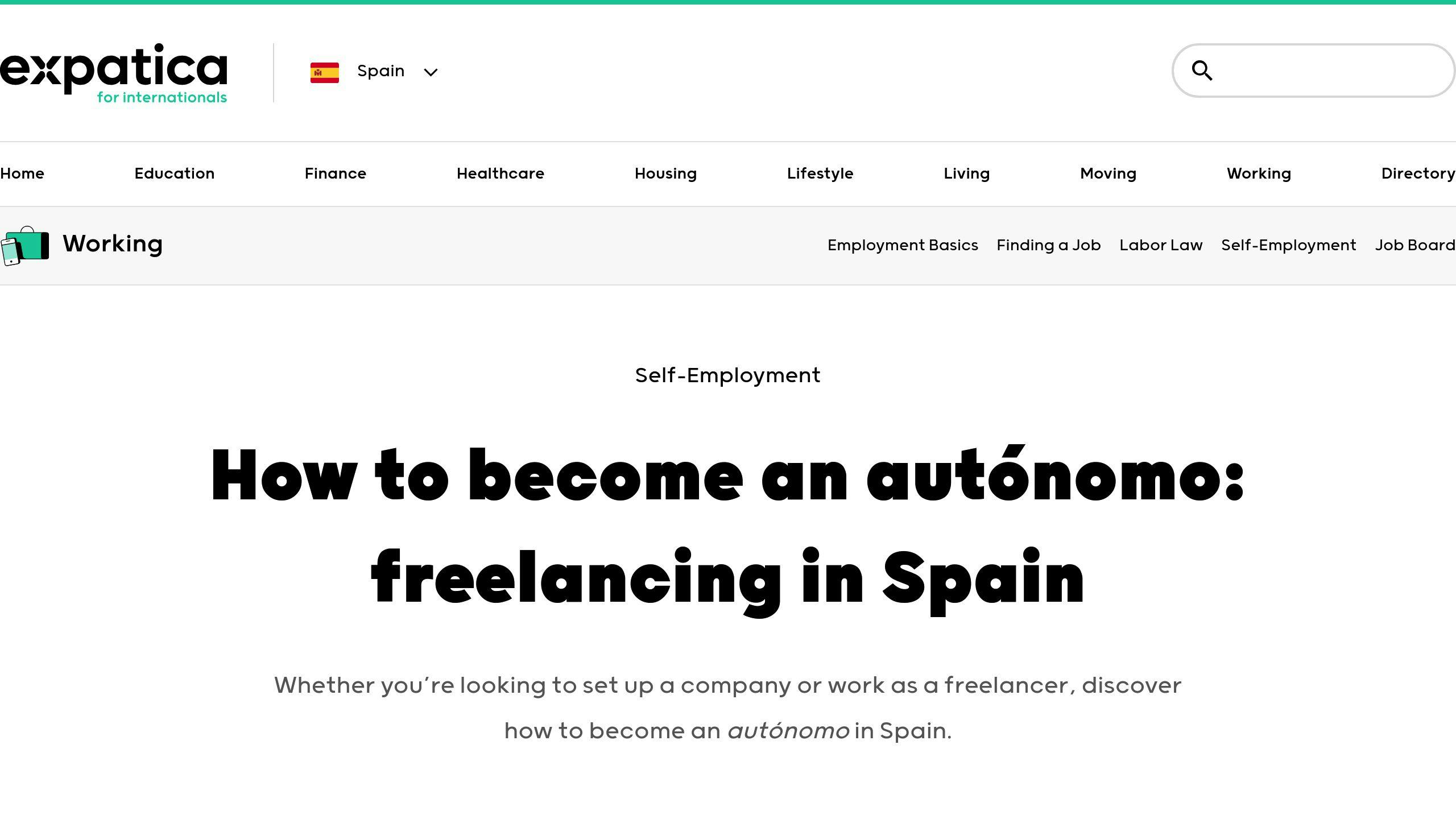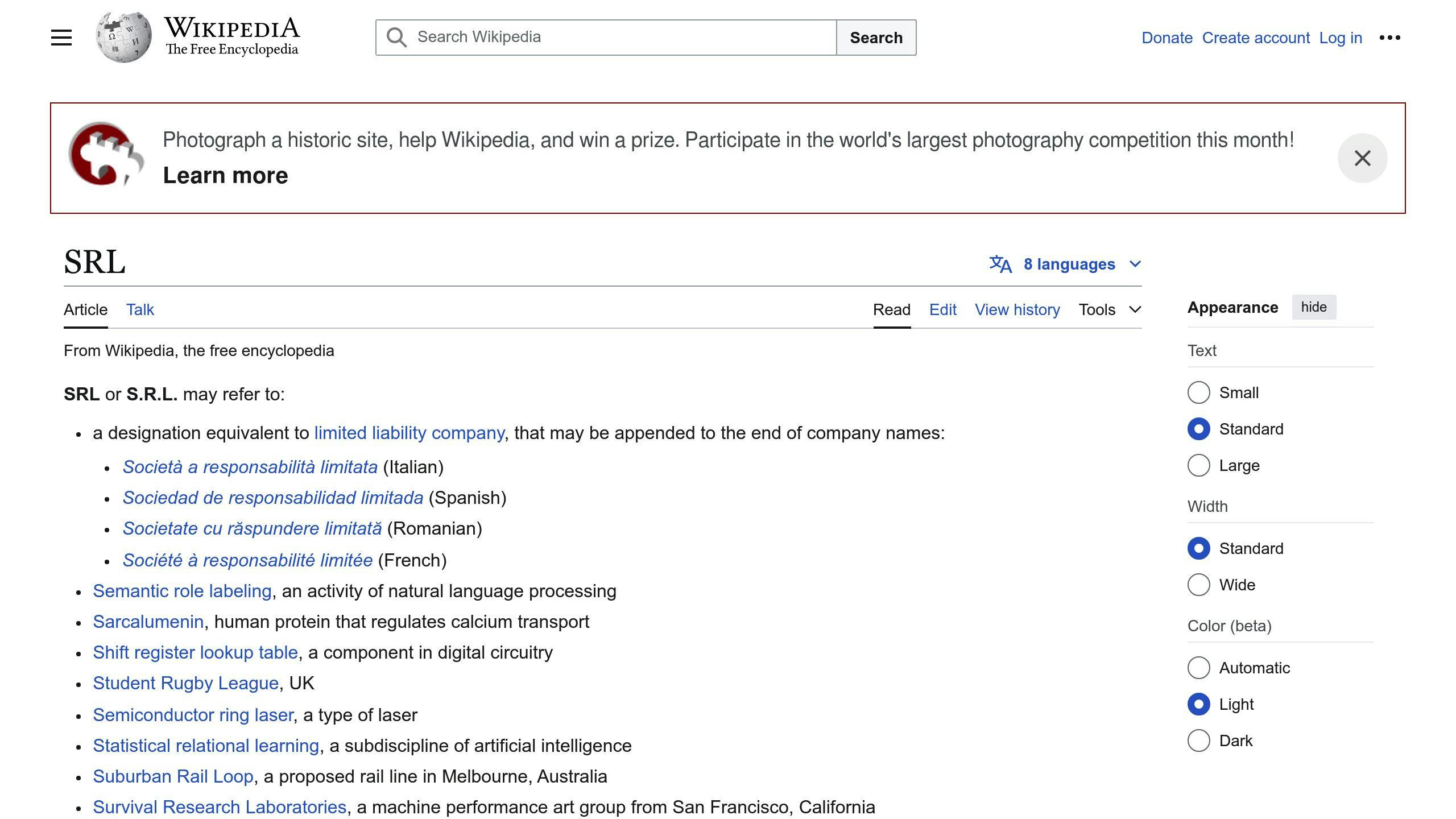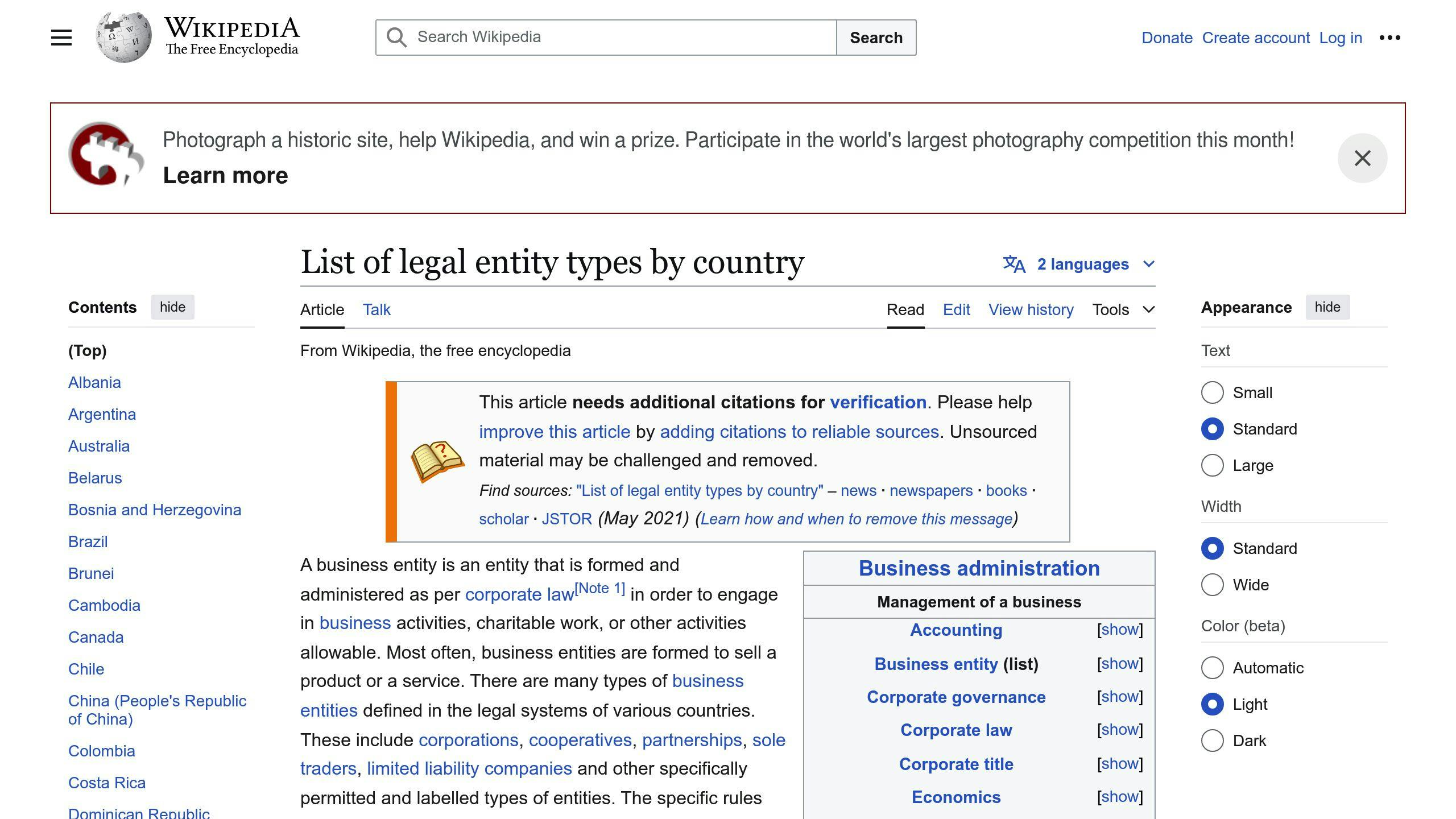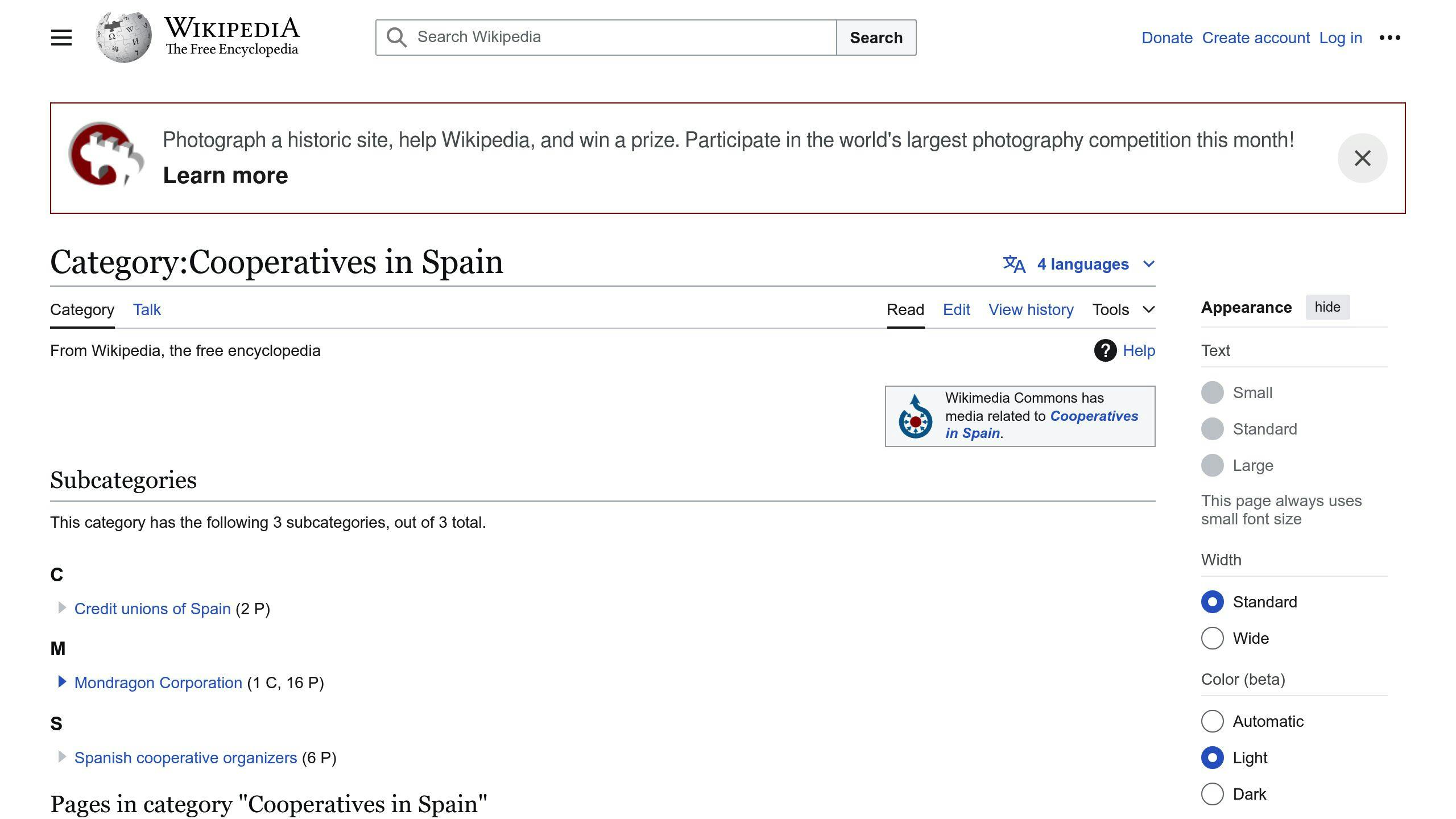Deciding between self-employment (autónomo) and a limited company (sociedad limitada) in Spain? Here's what you need to know:
- Self-employment: Easier setup, personal liability, simpler taxes
- Limited company: More complex setup, liability protection, potential tax savings
Quick comparison:
| Aspect | Self-Employed | Limited Company |
|---|---|---|
| Setup cost | Free - €100 | €3,000+ |
| Liability | Unlimited | Limited to company capital |
| Taxes | Personal income tax (up to 47%) | 25% corporate tax |
| Social Security | From €230/month | From €280/month |
| Best for | Freelancers, low income | High earners, multiple partners |
Choose self-employment if you're just starting or earning under €40,000. Go for a limited company if you're making over €60,000 or need liability protection.
Remember: Your choice affects taxes, legal protection, and business image. Get expert advice before deciding.
Related video from YouTube
What is Self-Employment (Autónomo) in Spain?

Self-employment in Spain, or "Autónomo", is the go-to option for freelancers and small business owners. It's simple, but comes with its own rules.
As an Autónomo, you're the boss. You pick your clients, set your hours, and keep your profits (after taxes). But you're also on the hook for everything else - taxes, social security, the works.
Becoming an Autónomo
Here's how to get started:
- Get a Tax ID (NIF or NIE)
- Register with tax authorities (Form 036 or 037)
- Sign up for Social Security
"The self-employed work permit application needs proof of identity, business capability, and financial means."
Social Security Costs
Autónomos pay their own social security. It covers healthcare, maternity benefits, and pension. Here's what you might pay in 2024:
| Monthly Income | Minimum Contribution | Maximum Contribution |
|---|---|---|
| €670 or less | €230.15 | €255.71 |
| €670.01 - €900 | €255.72 | €281.70 |
| €900.01 - €1,166.69 | €273.11 | €365.18 |
| €1,166.70 - €1,300 | €297.66 | €406.90 |
Rates go up with income, maxing out at €1,477.52 for incomes over €6,000.01.
Taxes
You'll deal with:
- Income Tax (IRPF): Quarterly and annual filings
- VAT (IVA): If you make over €30,000 a year in services
Pro Tip: Keep good records. You can deduct 5% of your net income (up to €2,000) plus other business expenses.
Being an Autónomo gives you freedom, but you need to stay on top of your finances. Know your obligations to avoid penalties and make the most of your self-employed status.
What is a Limited Company (Sociedad Limitada) in Spain?

A Sociedad Limitada (SL) or Sociedad de Responsabilidad Limitada (SRL) is Spain's go-to business structure for small and medium-sized enterprises. It's like a shield that protects your personal assets while giving you room to grow.
Here's what you need to know:
- You'll need at least €3,000 to start
- Your liability is capped at what you invest
- Foreigners can own 100% of the company
- You can start with just one shareholder
Setting Up Your SL
Want to set up an SL? Here's your game plan:
1. Pick a unique company name
2. Deposit your starting capital
3. Draft your company rules
4. Sign the official papers with a notary
5. Get registered
6. Grab your tax ID (NIF)
"Transferring SL shares is done through a notary, but it's not publicly registered. It's like having a secret handshake for your business."
Playing by the Rules
Running an SL comes with some homework:
- Hold a yearly big meeting
- Keep your books in order
- File your accounts annually
- Hold onto 15% of freelancer invoices for taxes
Tax Time
| Tax | How Much? | Extra Info |
|---|---|---|
| Corporate Tax | 25% | 15% for your first two money-making years |
| VAT (IVA) | 21% | Some stuff is cheaper at 4-10% |
You'll need to file taxes quarterly and yearly. This includes your corporate tax (Impuesto de Sociedades) and VAT (IVA).
"New companies get a sweet deal: 15% corporate tax for the first two profitable years. After that, it's back to the usual 25%."
Self-Employment vs. Limited Company
Let's compare self-employment (Autónomo) and limited company (Sociedad Limitada) in Spain:
Legal Differences
| Aspect | Autónomo | Sociedad Limitada |
|---|---|---|
| Legal Entity | Individual | Separate legal entity |
| Liability | Personal assets at risk | Limited to company capital |
| Minimum Capital | €0 | €3,000 |
| Ownership | Single owner | Can have multiple partners |
Personal Risk
The big difference? Liability:
- Autónomo: Your personal assets are on the hook for business debts.
- Sociedad Limitada: Your risk stops at the company's capital (€3,000 minimum).
Owners and Partners
- Autónomo: You're the boss. Period.
- Sociedad Limitada: Can have multiple partners, with ownership split into stakes.
Flying solo with a limited company? That's a "Sociedad Limitada Unipersonal" (S.L.U.).
Startup and Running Costs
| Cost Type | Autónomo | Sociedad Limitada |
|---|---|---|
| Setup Cost | €0 | €3,000 + legal fees |
| Social Security (first 6 months) | As low as €50/month | €280/month |
| Ongoing Costs | Lower | Higher (€800+/year for admin) |
Paperwork and Management
Both have regular tasks, but limited companies have more:
- Autónomo:
- Quarterly tax returns
- Annual income tax declaration
- Sociedad Limitada:
- Quarterly tax returns
- Annual corporate tax return
- Annual accounts filing with Company Register
Tax Considerations
For big earners, limited companies can save you money:
| Income | Autónomo Tax | Limited Company Tax |
|---|---|---|
| €100,000 | €34,216.25 | €32,572.96 |
In Catalonia, autónomos pay 44% tax on income over €60,000. Companies? A flat 25% (or 23% if turnover is under €1 million).
Making the Choice
Think about:
- Business size: Autónomo for small, S.L. for growth plans.
- Income level: S.L. might be better if you're consistently making over €60,000.
- Liability worries: S.L. offers more protection.
- Complexity tolerance: Autónomo is easier to manage.
sbb-itb-c1c0fc4
What to Think About When Choosing
Picking between self-employment and a limited company in Spain? Here's what you need to know:
Business Size and Growth
Self-employment works for small, stable businesses. Limited companies fit larger operations or growth plans.
Think about a software engineer making €100,000 from a US company. An SL might be better for managing growth and taxes.
Income and Taxes
| Income | Self-employed | Limited Company |
|---|---|---|
| Low to Medium | Lower tax rates | Higher initial costs |
| High (€100,000+) | Higher personal tax | Potential tax savings |
At €100,000:
- Self-employed tax: €34,216.25
- Limited company tax: €32,572.96
Protecting Your Personal Assets
Self-employed? Your personal assets are at risk for business debts.
Limited company? Your liability is capped at your invested capital (min. €3,000).
How Others See Your Business
Self-employed looks simpler but might seem less stable.
Limited companies often appear more credible to clients and partners.
Getting Money for Your Business
Self-employed? It can be tough to secure loans or investors.
Limited company? You might find it easier to get funding and investment.
One software engineer said: "I'm looking at how an SL structure fits with investing in ETFs. It seems more doable as a limited company."
Money Matters
Let's talk cash: self-employed vs. limited company in Spain.
Tax Rates and Write-offs
Self-employed and limited companies pay taxes differently:
| Aspect | Self-Employed | Limited Company |
|---|---|---|
| Tax Rate | Up to 46% | 25% (23% if < €1M) |
| Deductions | 7% (max €2000) | 3% (max €2000) |
On €100,000 profit:
- Self-employed tax: €34,216.25
- Limited company tax: €32,572.96
That's €1,643.29 saved with a limited company.
Social Security Costs
Self-employed? Your contributions scale:
| Income | Monthly Contribution (2024) |
|---|---|
| ≤ €670 | €230.15 |
| ≥ €6,000.01 | €542.13 - €1,477.52 |
Limited company directors? Often around €280/month in year one.
Getting Paid
Self-employed? Just withdraw profits.
Limited company? Two options:
- Salary: Taxed as income, plus social security.
- Dividends: 19% tax for non-residents.
Here's how €100,000 profit looks in a limited company:
| Method | Amount | Tax | Net |
|---|---|---|---|
| Salary | €38,250 | €8,584.19 | €25,247 |
| Dividends | €46,931.50 | €9,970.27 | €36,961.23 |
Total take-home: €62,208.22
Compare that to €59,040.25 for self-employed. Limited company structure often puts more in your pocket.
Running Your Business
Whether you're self-employed or running a limited company in Spain, you need to stay on top of some key tasks. Here's what you need to know:
Keeping Financial Records
Self-employed folks and limited companies both need to track their finances, but the rules are different:
| Business Type | What You Need to Do |
|---|---|
| Self-Employed (Autónomo) | - Log invoices (sent and received) - Basic accounting - Keep records for 6 years |
| Limited Company (SL) | - Full accounting of everything - Follow Plan General Contable rules - More detailed records |
If you're self-employed, it's pretty simple. Use free invoicing software, Excel, or even a pen and paper.
For limited companies, it's trickier. You'll need to follow strict accounting rules and track every penny.
Reports You Must File
Both types of businesses need to file reports, but limited companies have more paperwork:
| Report Type | Self-Employed | Limited Company |
|---|---|---|
| VAT (IVA) | Every 3 months | Every 3 months |
| Income Tax | Every 3 months + Yearly | Not applicable |
| Corporate Tax | Not applicable | Yearly |
| Annual Accounts | Not applicable | Yes, with Commercial Registry |
Self-employed? You'll file taxes quarterly and yearly. Limited companies? You'll do corporate taxes and submit your books to the Commercial Registry.
Following Spanish Business Rules
To stay legal in Spain, follow these key rules:
1. Pay Your Taxes
Don't be late. Limited companies pay 25% corporate tax (or 23% if you make less than €1 million).
2. Social Security
Self-employed? Expect to pay at least €250 monthly. Limited company directors often pay about €280 a month in the first year.
3. Labor Laws
Got employees? Follow Spanish rules on contracts, wages, and work hours.
4. Data Protection
Both business types must protect personal data. Set up clear rules for handling it.
5. Check Yourself
Do regular compliance checks to make sure you're following all the rules.
Real-Life Examples
Let's look at some situations where self-employment or setting up a limited company in Spain made sense.
When Self-Employment Works Best
For freelancers and small businesses, self-employment often fits the bill. Take David Nuff, a design consultant who's worked with Cisco, Nestlé, and Google. As a self-employed pro, he can work from anywhere:
"When we can set our lives up in a way that's going to allow us to be healthy, happy, and live successfully—success being defined as 'a life well lived'—that's going to spill over into the quality of our work."
Simon Carter and Emily started Greenbox Designs as freelancers on Elance (now Upwork). This let them work from different countries while growing their business.
Self-employment works well when you:
- Want a quick start with low costs
- Don't need to limit personal liability
- Expect to earn less than €60,000 per year
- Value work and lifestyle flexibility
When a Limited Company is Better
As businesses grow, many switch to a limited company structure. Here's when it makes sense:
1. Higher Earnings
If you're making over €60,000 yearly, a limited company can cut your tax bill. The 25% corporate tax rate often beats the self-employed rates, which can hit 47%.
2. Multiple Partners
Brandon Cowan's Crazy Dog Apps shows why limited companies work for partnerships. At 19, he co-founded the company using global talent. This structure makes it easier to manage multiple owners and sell shares.
3. Liability Protection
Mike Scanlin's Born to Sell highlights the perks of limited liability. He spent $37,000 on virtual workers, saving about $463,000 compared to local hires. A limited company protected his personal assets as the business grew.
4. Business Image
Limited companies often look more professional. They file annual accounts with the Trade Registry, which can boost trust.
5. Getting Funding
Banks often see limited companies as more stable. This structure can help if you want investors or loans.
| Factor | Self-Employed | Limited Company |
|---|---|---|
| Setup Cost | Free to €100 | €1,000 to €1,200 |
| Setup Time | 1 day | 2-3 weeks |
| Liability | Unlimited | Limited to company capital |
| Tax Rate | 19% to 47% (income-based) | 25% flat rate |
| Image | Less formal | More professional |
Choose based on your goals, income, and growth plans. Many start self-employed and switch to a limited company as they expand. Pick the path that fits your needs best.
Other Business Types
Spain offers more than just self-employment and limited companies. Let's look at some alternatives:
Partnerships (Sociedad Civil)

Partnerships sit between self-employment and limited companies. They're good for small businesses with multiple owners.
- No minimum capital needed
- Easy to set up
- Partners have unlimited liability
- Profits taxed as personal income
Jointly Owned Company (Comunidad de Bienes, CB)
Similar to partnerships, but with a twist:
- Needs at least two partners
- No separate legal identity
- Partners share unlimited liability
- Quick to set up
Workers' Owned Company (Sociedad Limitada Laboral, SLL)
This mixes limited company features with worker ownership:
- Workers own most of the capital
- Needs at least three partners
- Limited liability for members
- Good for employee-owned businesses
Cooperatives (Sociedad Cooperativa, S. Coop)

Member-owned organizations that work well in certain industries:
- Members own and run it for mutual benefit
- One member, one vote
- Limited liability for members
- Common in farming, housing, and retail
Quick Comparison
| Business Type | Min. Partners | Liability | Min. Capital | Tax |
|---|---|---|---|---|
| Sociedad Civil | 2 | Unlimited | None | Personal Income |
| Comunidad de Bienes | 2 | Unlimited | None | Personal Income |
| SLL | 3 | Limited | €3,000 | Corporate |
| Cooperativa | 3 | Limited | Varies | Corporate (with perks) |
Each structure has its pros and cons. Your choice depends on your business type, partner count, liability worries, and tax situation.
For example: Starting a small farm? A cooperative might work. Launching a fast-growing tech startup? An SL or SA could be better.
How to Decide
Picking between self-employment and a limited company in Spain isn't easy. Here's how to tackle this choice:
Look at Your Earnings
Your income plays a big role:
- Under €40,000? Self-employment is usually better for taxes.
- €40,000 - €60,000? It's a toss-up.
- Over €60,000? A limited company might save you more on taxes.
Let's break it down with a €100,000 net profit example:
- Self-employed take-home: €59,040.25
- Limited company director take-home: €62,208.22
That's about €3,000 more per year. Not always worth the extra work.
Think About Liability
As self-employed, you're on the hook for everything. A limited company (S.L.) shields your personal stuff.
But before you rush to form a company, think about:
- Insurance for self-employed (often cheaper and easier)
- How likely are you to face big business debts?
Startup and Running Costs
| Self-Employed | Limited Company |
|---|---|
| Free to start | €3,000 min. capital |
| €50/month social security (first 6 months) | €280/month social security (first year) |
| Simple accounting | Complex accounting and reporting |
Future Plans
Got big growth plans? Want partnerships? Working with big suppliers? A limited company might fit better.
Get Expert Help
Don't go solo on this decision. Talk to:
- A tax pro to crunch your numbers
- A lawyer to get the legal lowdown
Many businesses start as self-employed and switch to a limited company as they grow. No need to rush your choice.
Wrap-up
Picking between self-employment and a limited company in Spain? It's not a one-size-fits-all deal. Your choice can shape your business future and hit your wallet.
Here's the lowdown:
- Money talks: Earning under €40,000? Self-employment often wins on taxes. Raking in over €60,000? A limited company might save you cash.
- Who's on the hook?: Self-employed? You're liable for ALL business debts. Limited company? Your personal stuff is safer.
- Costs: Self-employment is cheaper to kick off and run. Limited companies? More expensive to set up and keep going.
- Looking good: Limited companies often seem more pro to clients and suppliers.
- Big dreams: Eyeing major growth or partnerships? A limited company fits better.
But hey, you're not stuck. Many start self-employed and switch to a limited company as they grow.
| Aspect | Self-Employed | Limited Company |
|---|---|---|
| Setup Cost | Free | €3,000 min. capital |
| Initial Social Security | €50/month (first 6 months) | €280/month (first year) |
| Accounting | Simple | Complex |
| Liability | Unlimited | Limited to company capital |
| Image | Less formal | More professional |
Don't go solo on this. Get help from pros who know Spanish business law inside out. A tax expert can crunch your numbers, while a lawyer can break down the legal stuff.
Spain's business scene? Always changing. Stay in the loop about new rules and chances. Network with other entrepreneurs and tap into support programs.
FAQs
How difficult is it to start a business in Spain?
Starting a business in Spain isn't a walk in the park, especially for foreigners. But don't worry, we'll break it down for you.
Here's the gist:
- Get your NIE (Número de Identificación Extranjero)
- Choose your business structure
- Open a business bank account
- Register your company name
- Notarize your documents
- Register with the Commercial Registry and Tax Office
- Sign up for Social Security (if needed)
Now, you've got two main options: go solo as self-employed (autónomo) or set up a limited company (Sociedad Limitada).
Going solo? It's quicker, cheaper, and you don't need a minimum capital. Plus, the accounting is simpler.
Opting for a limited company? You'll need at least €3,000 to start, and the setup process is more complex. You'll also need to sign a public deed.
Here's a quick cost comparison:
| Aspect | Self-Employed | Limited Company |
|---|---|---|
| Setup cost | Free | €3,000 min. capital |
| Initial Social Security | €50/month (first 6 months) | €280/month (first year) |
Not an EU citizen? Brace yourself for an extra hurdle: you'll need to snag a working visa first.
Is it complex? Yes. Impossible? Not at all. With the right info and preparation, you can navigate the Spanish business landscape like a pro.
